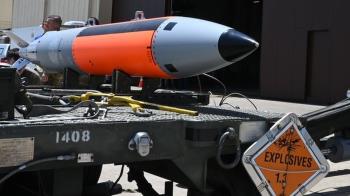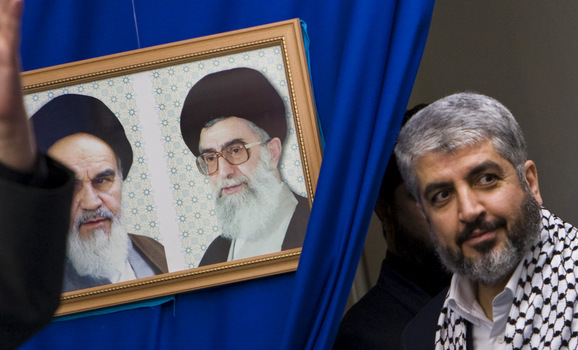Alwaght- The ice that has chilled Hamas’s stance toward Iran seems to be thawing as regional developments, particularly in Syria have proven to the Palestinian resistance group which once turned its back on the Islamic Republic, that it had been a miscalculation to distance itself from its number one supporter against the Israeli regime.
It appears that Hamas is seeking to re-establish the close relationship it once had with Iran through smooth talk and public praising for its continuous support for the resistance over the years.
Mousa Mohammed Abu Marzook, deputy chairman of Hamas's political bureau, has hailed Iran's stances towards Palestine saying that the financial and logistical support is unparalleled.
Marzook’s declared appreciation for Iran was not well received by many Arab officials who ultimately want to downplay Iran’s support for the resistance, an issue they have not been able to challenge simply because it goes against their unstated interests.
The shift in Hamas’s stance is highly reflective of what is going in Syria. It proves that the bid on the Syrian government’s collapse was a political misstep. After the Syrian crisis broke out in 2011, Hamas—like many other parties—believed that Damascus would soon be the headquarters of a new foreign-backed government. Counting on such a scenario, the group sought itself new allies that would replace Syria and in turn Iran when the war-torn country witnessed a new rule. Hamas gradually strengthened ties with Arab states in the Persian Gulf for this purpose.
Five years on, however, the Syrian government remains in place much to the chagrin of its enemies. Five years on, Hamas’s bid is a farce. Five years on, the Syrian government is still ruling in Syria with the help of the Resistance Axis that comprises Iran and Hezbollah. This sends a clear message to those who have wagered a bet on Syria’s defeat; that this axis is the only power Hamas can rely on and not the Muslim Brotherhood that is ready to bargain anything and cross its so-called red lines to achieve its interests.
Hamas realizes that Iran is one of the few forces in the region that has offered a helping hand, no strings attached. It has openly pledged support to any kind of resistance against the usurping Zionist regime and has repeatedly demonstrated that its advocacy for the Palestinian cause is not just talk by backing it with action that Hamas itself attests to.
There are also pressing factors that may have pushed Hamas even further to take this decision. Every day that Palestine remains under Israeli occupation and every time a Palestinian’s cry echoes in the Arab world without Arab states responding to the plight, it becomes more evident that the promises of several Arab states have been flushed down the drain. Of course, no one admits to this but the reality is imposing itself upon the Palestinians’ dreams.
Countries like Saudi Arabia which claims to call for the rights of Palestinians in the Arab league and then seeks to establish ties with Tel Aviv are leading examples of hypocrisy. In short, the Palestinian issue has ceased to be a priority for the heads of Arab states who have betrayed their once revered principles.
Into the bargain, the Israeli regime has stepped up pressure following the eruption of the Third Palestinian Intifada. With fear of growing resistance acts in the occupied West Bank and Jerusalem (al-Quds) increasing, the Israelis are clamping down on Palestinians. Just recently, the announcement of plans to build a wall around the Gaza Strip was made in a bid to increase the pressure on Palestinians and prevent Hamas fighters from expanding underground tunnels into Israeli-occupied territories and carrying out operations. Not to mention the readiness to attack the Gaza any time.
Hamas also faces disappointment within the Palestinian framework. For the past nine years of negotiations, Hamas and Fatah have repeatedly failed to follow through on their negotiation efforts. Although the two sides engaged in negotiations earlier this year, the prospects of implementing the Beach Refugee Camp Agreement do not look promising. By inference, this means that the Palestinian unity government is also failing.
Alternatively, amidst all the failing factors, Iran has set an example in its loyalty for its allies. In contrast to players in the Persian-Gulf and Turkey, who are racing to recalibrate their relations with the Israeli regime, Iran has not abandoned Syria and Iraq alone in times of need; meanwhile it has always maintained the Palestinian issue on top of its agenda. This is probably why Hamas has re-evaluated its stance and came to the conclusion that Iran is the only state on which it can rely.



























